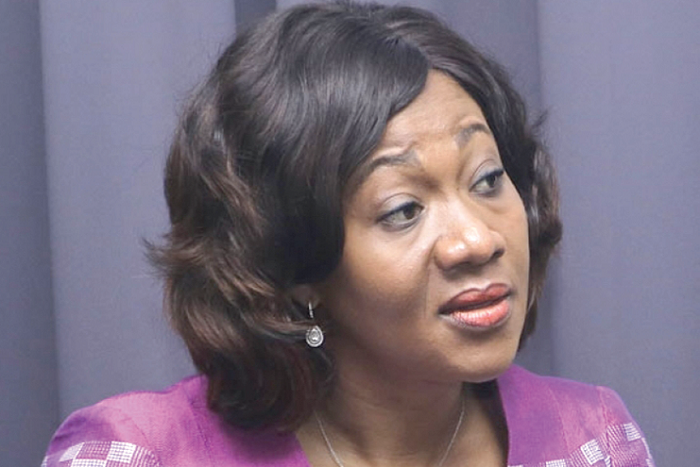
Increasing number of rejected ballots -Time to consider electronic voting
The recent referendum for the creation of the Western North, Oti, Ahafo, Bono East, Savannah and North East regions supervised by the Electoral Commission recorded a total of 4,175 rejected ballots.
The figure, taking into consideration the mammoth approval by the electorate who took part in the exercise may appear small but significant enough to influence the outcome of a major election, especially one that is determined by simple majority.
For instance, in the 2012 parliamentary elections at the Tema East Constituency, the then candidate, Nii Kwartei Titus Glover beat his closest contender Kempes Ofosuware by only three votes which consequently earned him the name “MP3.”
Assuming four of the electorate who voted in favour of Mr Glover had “messed up” with the ballot, the destiny of the contest would have been altered by human making. This is one out of tens of examples that testifies the importance of ensuring the validity of every vote cast.
The trend from 2008
Per Ghana’s electoral laws, a “rejected ballot” refers to a ballot paper that cannot be counted for one or more of a range of reasons. The reason includes: “the ballot paper does not have an official mark”; “the voter has cast more votes than he or she is entitled to; the voter has made writings or marks by which he or she can be identified”; the voter has left the ballot paper blank or has marked or thumb-printed it in such a way that it is not clear for whom he or she intended to vote”.
In the 2008 general elections which saw the then candidate John Evans Atta Mills win after bagging 52.1 per cent of the total of 8,671,272 vote cast, a total of 205,438 rejected ballots (representing 2.4 per cent) was recorded.
Figures published by the Electoral Commission after the 2012 elections indicated that a total of 251,720 ballots cast were rejected outright out of 11, 246,982 votes put into the ballot boxes.
The certified results of the 2016 general election also showed that out of a total of 10,881,083 votes cast, some 167,349 of the ballots were rejected with the Northern Region alone accounting for 24,269 of them.
With regards to the recent referendum, the number of rejected ballots recorded in the proposed North Western Region exceeded the number of “No votes” recorded. While the rejected ballots stood at 951, a total of 942 “No votes” was recorded.
Reason for the trend
There is a conspiracy theory that claims that most of the rejected ballots are the creation of some electoral officials who manage to find their way to the strongholds of their opposing candidate to influence the voting process by applying extra thumb prints to the ballot papers to invalidate them.
Some have also blamed the unpleasant trend on the inability of the National Commission for Civic Education (NCCE) to efficiently deliver on its mandate of deepening education on voting processes to enable the electorate to come to terms with the best practices required ahead of every election.
Although there is no scientific basis to the claims, it could be deduced that there are human errors associated with the electoral processes which is inevitable due to the massive paper works that come with it.
Is electronic voting the way?
The solution to every problem that has to do with human inputs is the introduction of technological systems that would give little or no room for people to temper with the process.
The fairness of an election does not only centre on the absence of irregularities but also the availability of systems that would ensure that the people’s choice is fairly represented in the absence of inevitable conditions that could invalidate their votes.
In reference to the increasing number of rejected ballots that continues to mar the beauty of our elections, it is not out of place to suggest that Ghana has reached that stage where it requires electronic voting systems to enhance its elections.
Some have argued that electronic voting systems are expensive and sophisticated in that the country cannot afford to implement them. How expensive is the system for Ghana if some African countries including Namibia, Sudan, DR Congo, have bought into it?
Electronic voting may have its own challenges with respect to issues of cyber threats. However, there are existing models to guide our implementation if we really intend to introduce it in our electioneering process.
